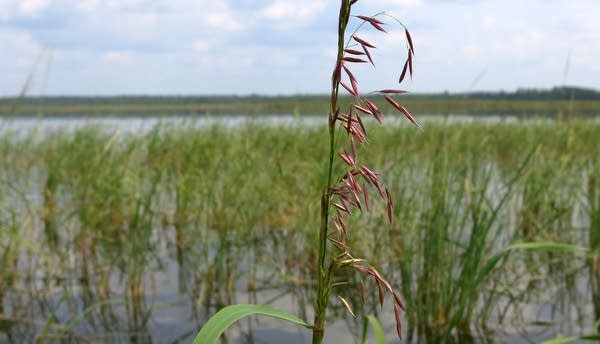McCollum blasts new wild rice plan

Go Deeper.
Create an account or log in to save stories.
Like this?
Thanks for liking this story! We have added it to a list of your favorite stories.

DFL U.S. Rep. Betty McCollum says she's concerned about a state plan to change a clean water standard aimed at protecting wild rice.
The Minnesota Pollution Control Agency said Tuesday it's updating its standard to account for new science.
But McCollum said Wednesday the move will result in lower water quality. She said she's worried it's being done to help mining companies.
"I don't think the state of Minnesota should be going towards lowering our water quality standards to cater to any industry,” McCollum said. “Protecting our water should be based on sound environmental science and nothing else. If water quality standards are lowered and Minnesota waters are harmed, it's going to be impossible to restore them."
Turn Up Your Support
MPR News helps you turn down the noise and build shared understanding. Turn up your support for this public resource and keep trusted journalism accessible to all.
McCollum said she's particularly concerned because one of the scientists who researched the issue for the MPCA said the proposal is only a hypothesis right now.
McCollum wrote a letter to EPA Administrator Gina McCarthy earlier this month asking her to oppose any effort to lower the state’s current standard. She also said the EPA should consult with the state’s Native American tribes about the change, since the tribes say wild rice is a sacred food for them. They also harvest it and sell it as a business.
“They’re very concerned about the standard and the effect on wild rice,” McCollum said.
McCollum’s comments run counter to those from some other state Democrats.
Gov. Mark Dayton told MPR News earlier this week that the existing water standard would be catastrophic to mining companies on the Iron Range.
McCollum said Dayton and other state policy leaders should push Minnesota's economic development agencies, including the Iron Range Resources and Rehabilitation Board, to help the state's taconite mines meet the current water standard.
“Minnesotans are going to be concerned about water quality standards being lowered when there could be an opportunity to work with an industry to put the tools in their tool box so that they’re developing mining jobs that protect our waters,” McCollum said.
U.S. Steel said it would cost hundreds of millions of dollars to update its Minntac Facility in Mountain Iron to meet the existing standard. U.S. Steel executives praised the MPCA for reviewing and updating the standard.
Update:
Dayton defended the new standard Wednesday and criticized those who are questioning the MPCA's move. He said the original standard was flawed.
“People who like that extreme standard because it serves their objectives are now claiming that we are somehow backing off," he said. "But they’re ones who always said we should rely on current science to drive these decisions, and in my judgment that’s what we’re doing in this situation.”


